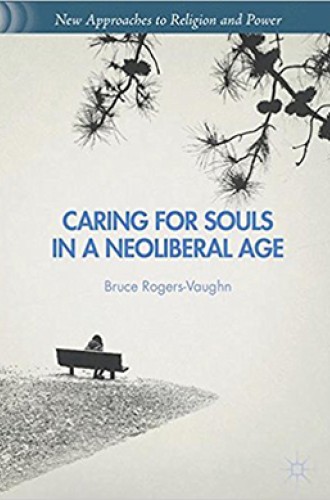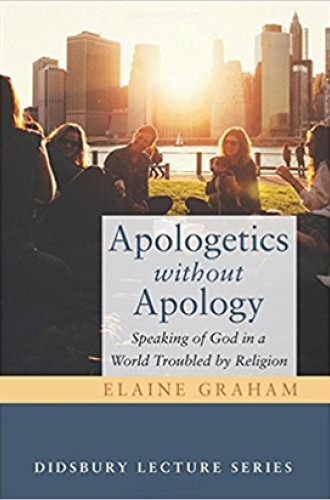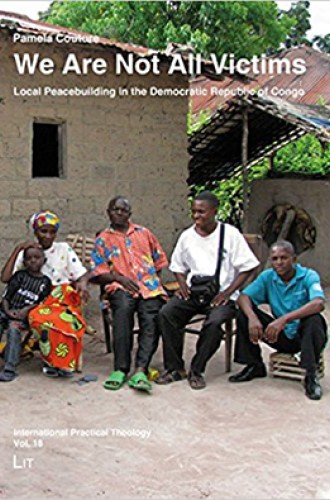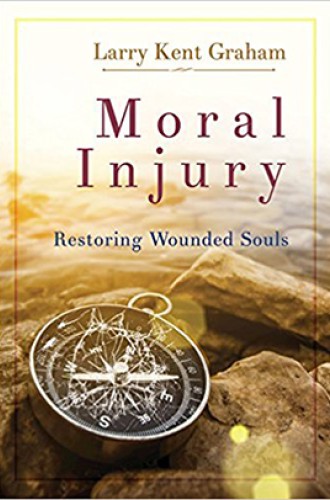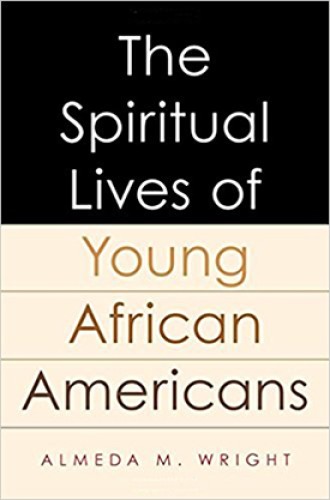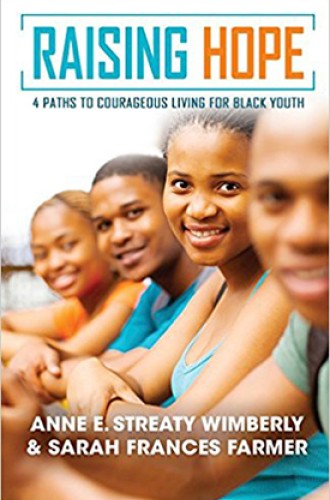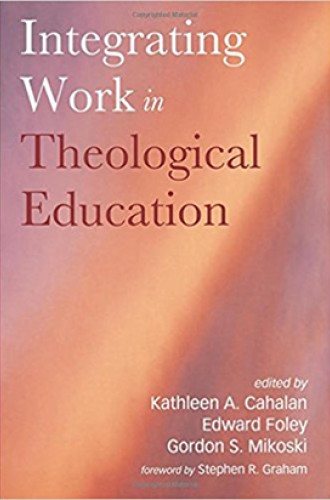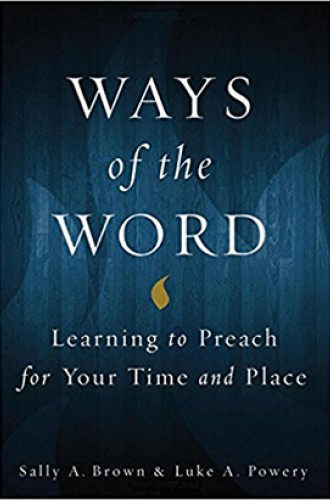Take & Read: Practical theology
Caring for Souls in a Neoliberal Age, by Bruce Rogers-Vaughn. Is there such thing as a postcapitalist pastoral theology? Bruce Rogers-Vaughn, a pastoral psychotherapist who teaches at Vanderbilt, claims that this is precisely what is needed to address the “third-order suffering” that neoliberalism has wrought. In a well-researched and cogently argued analysis of neoliberalism—the free market ideology currently governing politics, economics, and culture—the author reflects on what constitutes care in this context. In our age of increasing fragmentation and dislocation, Rogers-Vaughn argues that pastoral theology must cultivate and strengthen religious collectives that can “replace the cravings of the market with the desires of soul.”
Apologetics without Apology: Speaking of God in a World Troubled by Religion, by Elaine Graham. British practical theologian Elaine Graham lucidly argues against Tertullian that Jerusalem does “have to do with Athens.” Christians need to dialogue with wider publics and offer coherent accounts of their convictions. Her new apologetics is not based solely on propositions and doctrines, nor is it defensive, antagonistic, or argued from a position of victimhood. It involves listening and speaking, as well as active collaboration with those of diverse faiths and those of none, for the sake of the common good. It entails participating in the mission of God’s love in and for the world. In Graham’s words, “this is a model of apologetics not as a weapon of conversion, but a gesture of solidarity.”
Read our latest issue or browse back issues.
We Are Not All Victims: Local Peacebuilding in the Democratic Republic of Congo, by Pamela Couture. Based on a decade of ethnographic research in Kamina, DRC, Pamela Couture tells the story of the peacemaking activities of the Luba people and their religious leaders. Her account is based on the recorded (and in some cases, translated) testimonies of 78 people who publicly bore witness to the struggle, along with numerous interviews and prolonged periods of participant observation. Noting the tendency of Western authors to interpret Congolese life only in terms of violence, intrigue, victims, and perpetrators, Couture presents the Luba as agents, people who “live ordinary lives and rise to extraordinary courage when the times call for it.” Couture’s use of the genre of creative nonfiction makes the book accessible and compelling.
Moral Injury: Restoring Wounded Souls, by Larry Kent Graham. The study of moral injury is usually restricted to the experiences of soldiers returning from war, suffering the effects of the violence they have seen and done. Larry Kent Graham expands the concept by considering commonplace moral dilemmas, explaining how moral injuries occur, and describing the haunting guilt and shame they produce. Graham is a sensitive and companionable guide as he draws readers into reflection and offers a process for restoration called “collaborative conversation.” Clergy, laypersons, soldiers, survivors of trauma, and other wounded souls struggling to recover their moral compass will find hope and healing in these pages.
The Spiritual Lives of Young African Americans, by Almeda M. Wright. Religious educator Almeda Wright surveys and interviews young African American Christians across denominational lines to learn about their spiritual lives. Many feel overwhelmed by their experiences of violence, racism, poverty, and sexism. Though they find encouragement in their faith, they do not believe that God calls them to work against systemic injustice. Wright finds that the Sunday school curricula and sermons the youth typically hear do not convey a link between personal faith and public, political work for change. Nor does the broader culture support this kind of empowerment. But the seeds of faithful spiritual resistance are alive in historical legacies, the work of young activists like Bree Newsome, and poetry slams and spoken word contests—where Wright hears raw articulations of suffering and fear that use biblical imagery and cry out to God.
Raising Hope: Four Paths to Courageous Living for Black Youth, by Anne E. Streaty Wimberly and Sarah Frances Farmer. How can the church convince black teenagers that their lives matter, when it sometimes appears that “hope unborn had died” (to use the words of James Weldon Johnson)? This book calls on the church to affirm, mentor, and empower African American adolescents by connecting them with opportunities to flourish. The authors offer clear guidance for youth leaders, pastors, and caring adults who want to make a difference. They describe four pathways to “courageous hope in action”: storytelling, artistic expression, peacemaking, and awareness. This hope-filled practical resource will nourish, instruct, and inspire.
Integrating Work in Theological Education, edited by Kathleen A. Cahalan, Edward Foley, and Gordon S. Mikoski. As theological schools develop specialized fields of knowledge, the challenge of integrating learning often falls to students. This book brings together the wisdom of nine scholars who have been engaging this challenge through three frameworks: integrating knowledge among the disciplines, overcoming the split between practice and theory, and preparing students to meet professional ideals of analytic reasoning, practical skill, and moral judgment. Through case studies and theological reflection, the contributors flesh out what integration means in teaching, in curricular overhauls, and in field education. Their big-picture thinking points toward the renewal of theological education.
Pastoral Identity as Social Construction: Pastoral Identity in Postmodern, Intercultural, and Multifaith Contexts, by Samuel Park. Once seen as fixed and individualistic, pastoral identity is presented here as a fluid property that emerges in the context of relationships. Samuel Park studied the experiences of 64 caregivers and found that they constructed their identities through their encounters with careseekers. Park’s sophisticated discussion of power, reflexivity, and social construction is matched by a theological discussion of perichoresis that emphasizes the relationality of the Trinity. This book will be a resource for seminarians who struggle to integrate their theology and practice of pastoral care, helping them become flexible and open caregivers, firmly rooted in God’s love.
Ways of the Word: Learning to Preach for Your Time and Place, by Sally A. Brown and Luke A. Powery. This introductory textbook written by two eminent preaching scholars advances a case for Spirit-led preaching guided by theology, prayer, meditation, exegetical study of the scriptures, and embodied delivery. Sally Brown and Luke Powery bring their differences in denomination, race, and gender to highlight the importance of honoring a diversity of points of view and the dynamic nature of the preaching event. They offer clear, practical guidance on the selection of texts, biblical interpretation, sermon form, gestural repertoire, and the use of technology. The gathered wisdom of many great preachers is condensed in this highly readable yet nuanced volume.
Preaching in the Era of Trump, by O. Wesley Allen Jr. Is there a way to acknowledge from the pulpit the devastating impact of the president’s unprecedented speech and actions without alienating those who supported or still support him? This is no time to mince words, O. Wesley Allen asserts, or to abandon the prophetic role of preaching. Allen offers strategies for addressing race, gender, sexual identity and orientation, and Islam in a confessional tone that recognizes the church’s long complicity in accepting the structural sins of racism, sexism, heterosexism, and Islamophobia. He recommends “inviting hearers into the sermons as honored guests to converse about the topic instead of using the topic as a weapon against them.” Using stories, Allen shows more than tells his readers how to do this.


